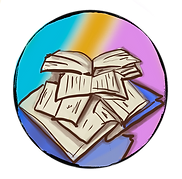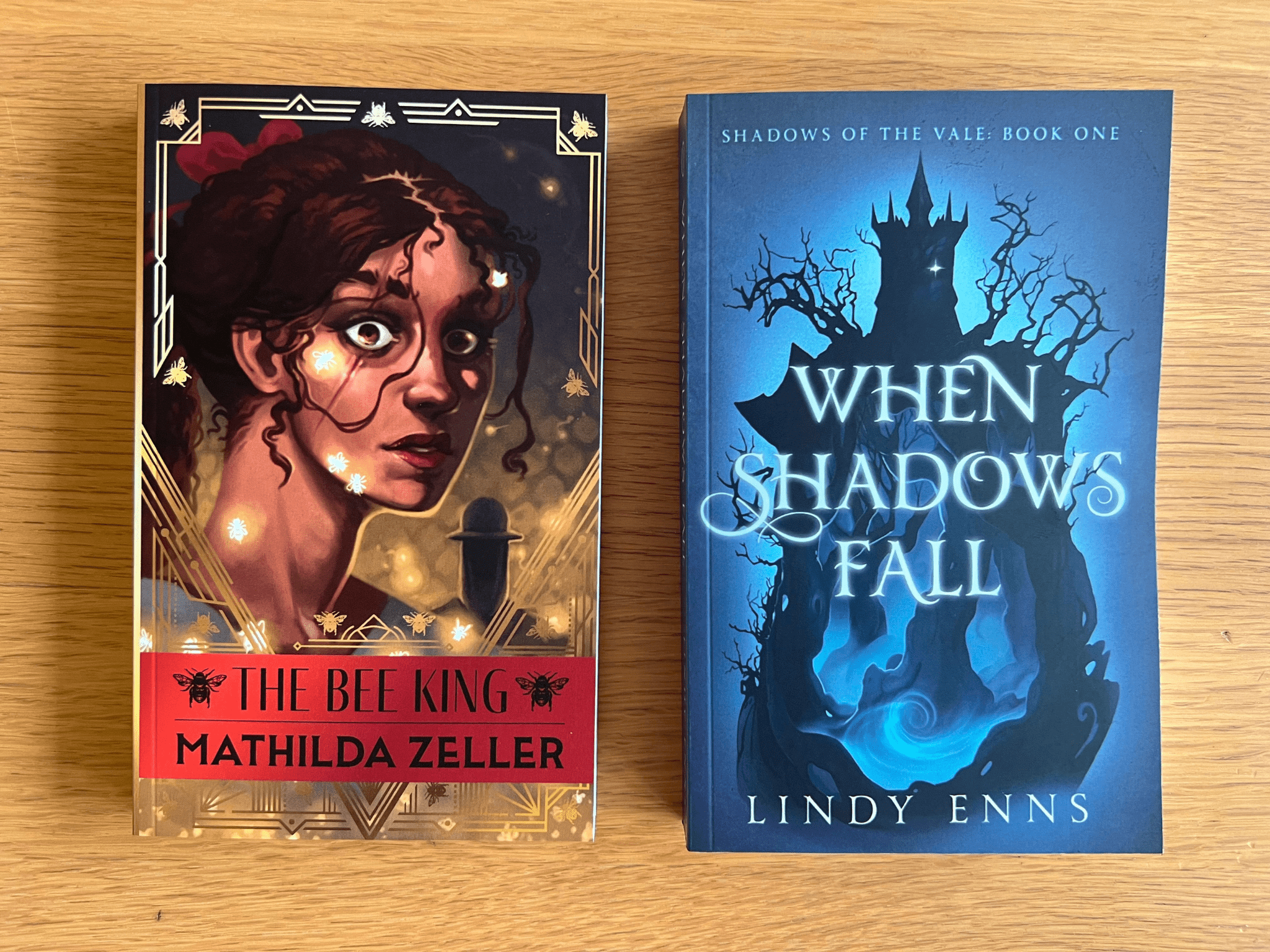La BELLE FAMILLE
Like most folks who write, I started as a kid. When I was six or seven, I began writing and illustrating little stories featuring my stuffed toys. I still have some of these in a box somewhere. Usually, they ended with the main characters fainting from surprise at some plot twist. All of my siblings (and I have ten of them) loved reading and we talked about books nonstop. I was always trying to read what my older siblings were, which led to completing The Lord of the Rings series at the age of nine. Making stories was just a natural outcome of my love of reading other people’s stories and enjoying the beautiful worlds that authors created. I think a lot of writing for me is escapism from my work, which tends to be stressful. This was especially true of my first published work, Firefax, which I rewrote from an old project during the COVID pandemic, when I was watching people die every shift and having to call their families in the middle of the night when there was nothing else we could do for their loved one. Writing that book was such an important escape for my soul from the absolute hell I was working in.
Since I usually write historical fiction and fantasy, there’s a ton of research that goes into it. It’s important to create a world as close to how it actually was as I can, so I spend months researching while writing a new historical fiction novel, reading primary and secondary sources, reviewing maps and topography of all the locations. For La Belle Famille, in particular, I spent a lot of time researching languages spoken in colonial New England, because I felt this would help the reader feel immersed in the rich and vibrantly multicultural world from whence the United States eventually came.
I love doing the formatting for the books, and little details can be key in keeping the reader in the story, including page breaks that maintain the tone of the novel, or headers that can remind someone whose perspective the chapter is written from (though I try to make this clear from the writing itself). I use a program called Vellum to format, so that makes it easy and I love creating a visually appealing work that will keep readers engaged.
My favorite part, of course, is the writing! Exploring the challenges my characters face is such a joy. I love getting to know each character and their limits. My least favorite part is certainly the marketing. Because I have pretty limited time, I’d always rather spend my writing time actually writing and researching than doing marketing and promotion. Since writing is its own reward and I’m not too worried about selling a million copies, I feel like the tradeoff is fine. As I told some friends in a local writing group, I have no personal desire to be famous, though I do sometimes want my characters to be.
I am going to actually give two pieces of advice. The first is advice on perspective that might be helpful: Don’t take yourself too seriously. No one lives or dies because you write and publish your stories. Enjoy the process, love that you have the ability and the time to create beautiful and delightful stories. It is an honor and privilege to be able to entertain others! However, in the big scheme of things, your work doesn’t matter. No one’s getting their cancer cured because you did or didn’t write today. No one’s going to die because you phrased something a particular way (unless you’re directly telling readers to kill others, in which case, probably stop writing and turn yourself into the local police station). No one is actually anxiously waiting for your next work to come out. There are plenty of other books for them to fill their time with while you are perfecting your next release. I have found that realization quite freeing as a writer. Relax and enjoy that you get to write!
My other piece of advice may or may not work for you, but I think it’s helpful to begin your story with a clear picture of the end in mind. Usually when I start writing a story, the scene that is the most clear in my head is the last one. I know the end of the characters’ journeys. This helps keep me grounded and headed in the right direction, and keeps the plot on track even if I stray from my outline. It’s also very motivating. Because I know what happens at the end and I’ve played that scene in my head a thousand times, it’s so exciting to finally get to that part of the writing and put those imaginings down on paper.




